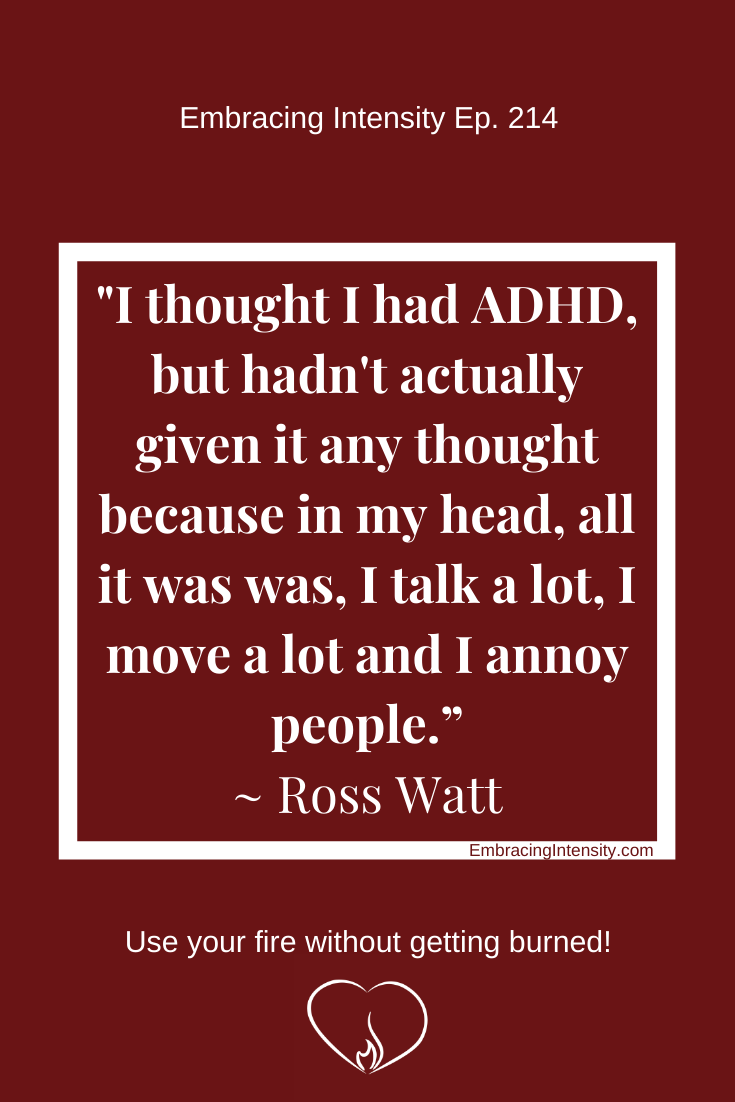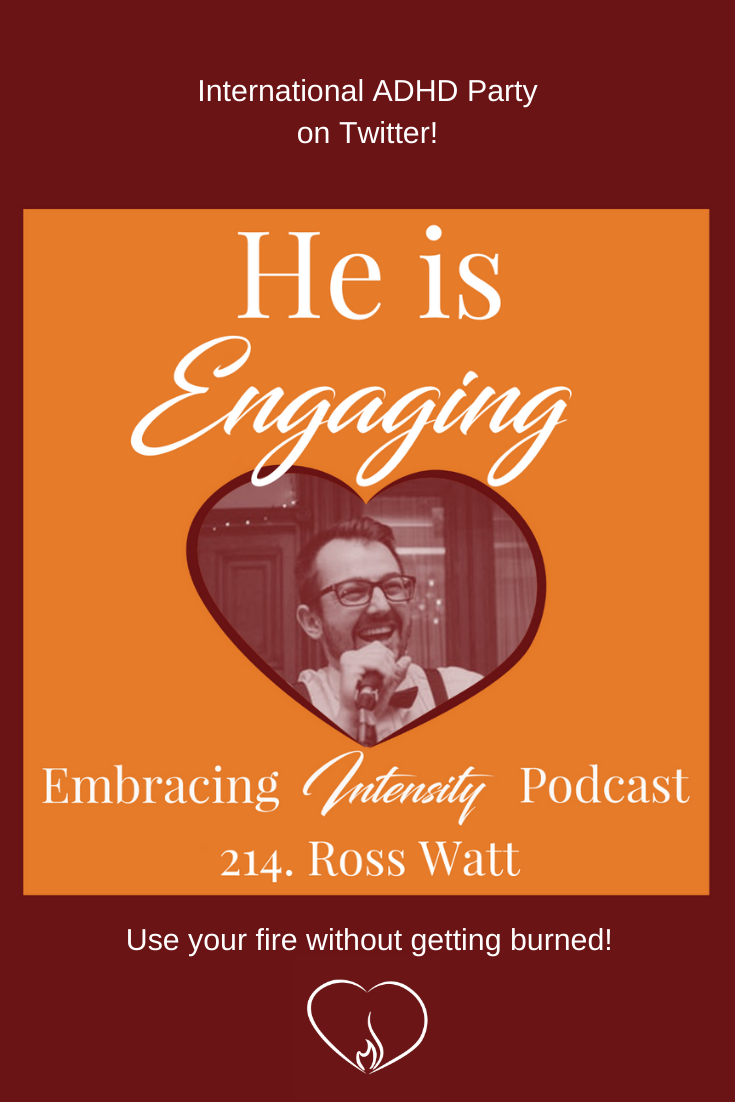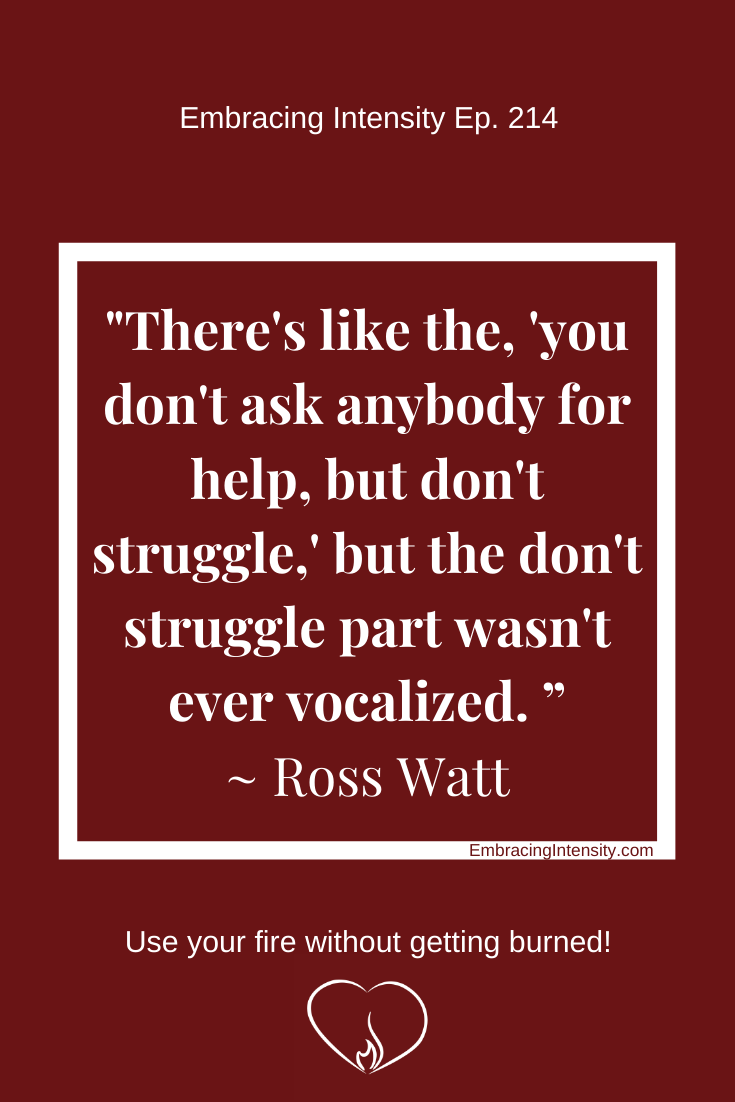My guest today shares the keen awareness he’s developed of his ADHD diagnosis and how it impacts his life. Join us to hear the story of the good he’s doing in the world.
Ross Watt hosts the International ADHD Party on Twitter and is one of the ADHD-Hub co-creators. He’s working hard to make a difference for kids and adults with ADHD.

Show Highlights:
-
Why Ross is intensely passionate about ADHD, writing poems, and encouraging others
-
How Ross’ personal brand of intensity means being hyper-focused with a chip on his shoulder and always investigating things in deeper ways
-
How Ross grew up being strong-willed, determined (especially when told he couldn’t do something), opinionated, and argumentative
-
How Ross’ parents nicknamed him “Half-a-job,” which was a dig that led him to compare himself to others and find that he didn’t measure up
-
How Ross’ adolescent years were a big contradiction
-
How Ross has had to tone himself down and tune himself out when he knows he shouldn’t say something but feels like he will explode
-
How Ross has had to learn when to speak up and when to be quiet
-
How Ross’ intensity got out of control when he left his parents’ house at age 16, determined to prove everybody wrong
-
How Ross uses his fire for good, helping others with diplomacy and patience
-
How Ross helps others develop their ideas and disprove their opinions of themselves
-
How Ross formed the habit of not telling others what he will do–just in case he doesn’t follow through
-
Why Ross is very set in daily routines
-
How Ross helps others by being honest and giving them belief in themselves
-
How to figure out if you’re a “carrot” or “stick” person
Resources:
Connect with Ross:
Twitter: ADHD



